Designers are adding gemstones to this jewelry classic, and the result is a grand slam.
Like most jewelry classics, the tennis bracelet never goes out of style, but it does change. A trend that started in the 1970s, when tennis great Chris Evert put it on the map by wearing a diamond bracelet on the court, it has evolved over the years. Round, colorless, bezel-set diamonds will always be the GOAT when it comes to the tennis bracelet, but the recent penchant for adding color has been reasserting this style’s status as a classic with a twist.
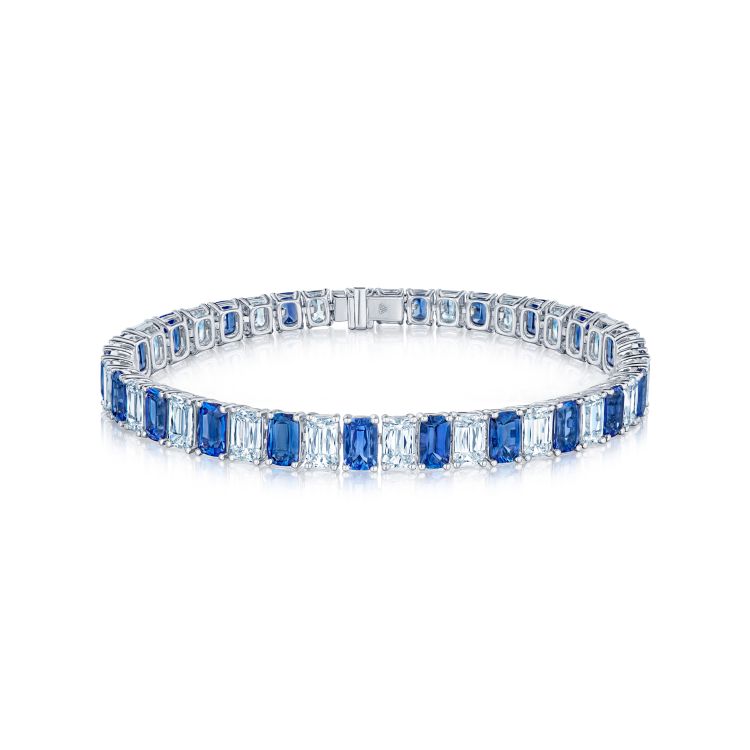
“We love the look of colorful tennis bracelets worn in someone’s everyday stack,” says Jenny Klatt, cofounder of New York jewelry manufacturer Jemma Wynne. “We see it as an opportunity to incorporate color and add a gemmy, fun feel to someone’s look. The gems don’t need to match someone’s clothing exactly, but can be sold as a neutral silhouette with just a pop of color that goes with everything.”
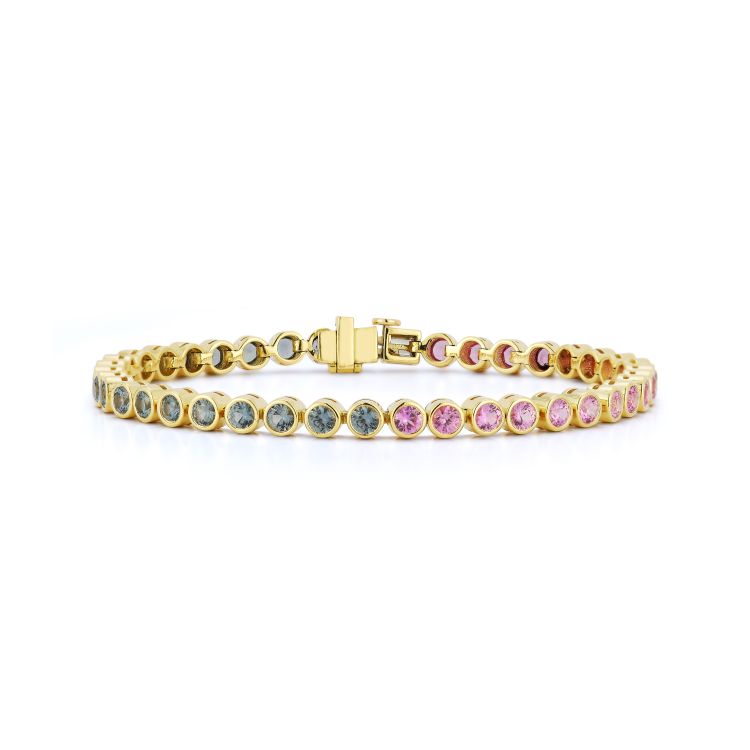
Her company’s newest styles contain everything from tsavorites to sapphires and emeralds — classic gems in their own right. Some have varying stone sizes, another step outside the category’s design-code box. “While we love the uniformity of the stones in tennis bracelets, we have also added our own spin by offering versions with one large colored stone in the center, or half one color and half another,” says Klatt. “They still have that classic tennis feel, but with an added pop of color.”
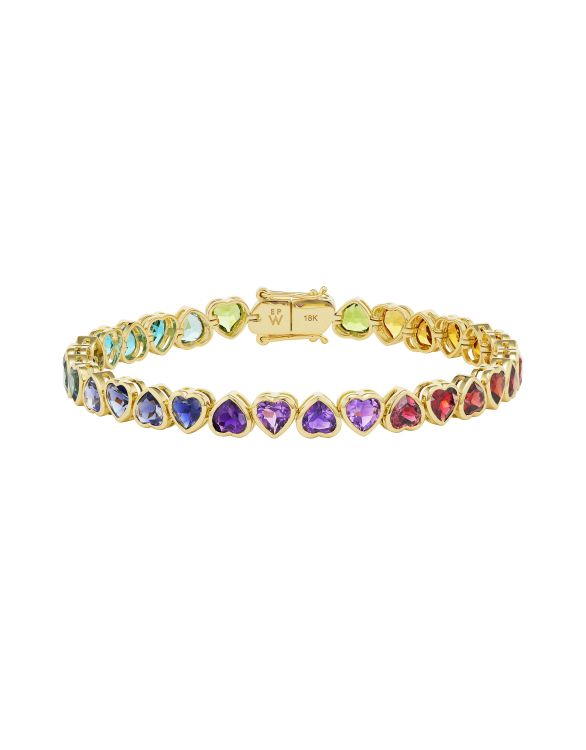
Upmarket appeal
At New York-based jeweler Arazi Eternity, the market for colored tennis bracelets lies primarily with older shoppers, says vice president Josh Arazi. “These buyers are more mature; they have already amassed a strong diamond jewelry collection and are ready to explore their style.”
The firm’s bracelets run in the high range, from $20,000 to $1 million. A prime example, interspersing emerald-cut rubies with emerald-cut diamonds in platinum, carries a price tag of $130,000. “We have been innovative with diamond-versus-gemstone ratio placement and through our non-alternating pattern, as seen in our ruby and diamond bracelet,” comments Arazi.
Another example, this one with pear-shaped, fancy-yellow diamonds, comes in at $180,000. But pink is the real winner this year, he says, as “it does best with contemporary designs.” An Arazi bracelet with 14 carats of east-west-set pink sapphires in emerald, pear and oval cuts costs $30,000.
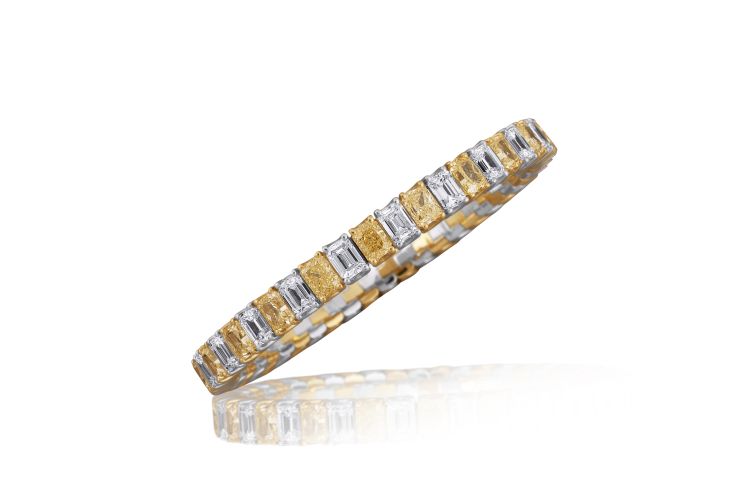
Plenty of options
Even colorless diamonds are increasingly being used in off-round shapes. “Mixed diamond cuts are now popular, as are a mix of diamonds and colored gemstones,” reports Maria Carola Picchiotti, marketing director of Italian jeweler Picchiotti.
Her selling preference is to offer lots of style, color and price choices so people “will not feel forced into buying something they are not 100% sure about,” she says. “It helps that our bracelets are expandable, using a proprietary technology [that] makes them adaptable to most wrist sizes.”
For Arazi, the best way to sell colored tennis bracelets “is to talk about how fine color is really very individual. No two pieces are truly alike.”

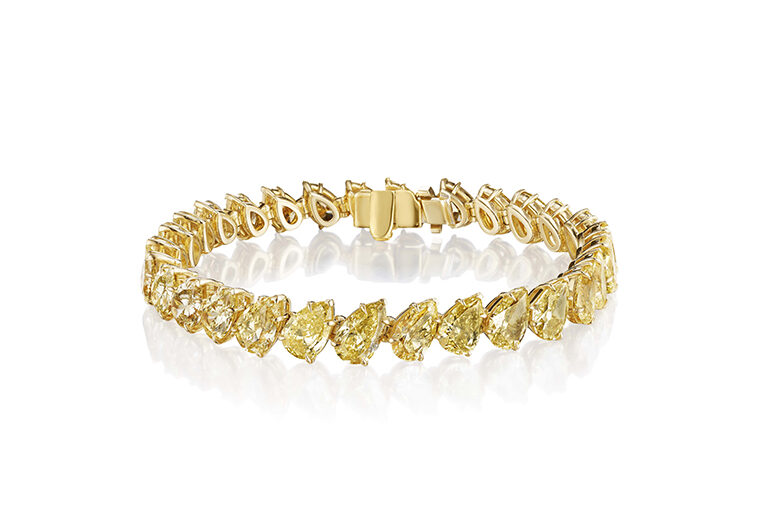
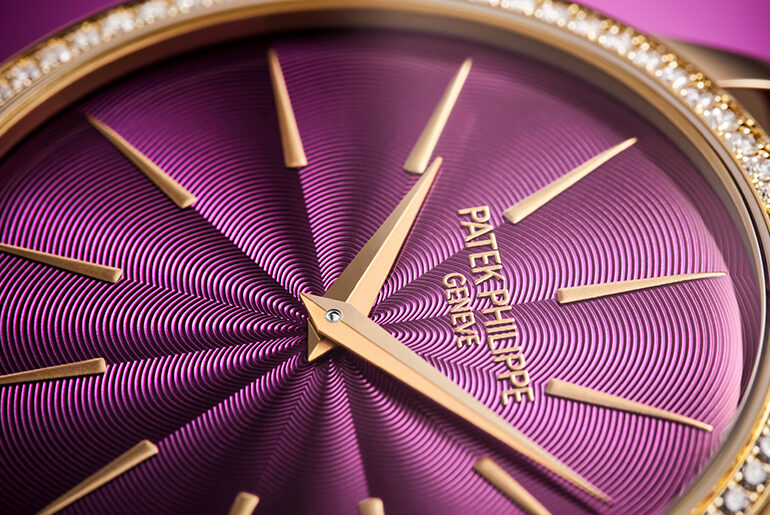
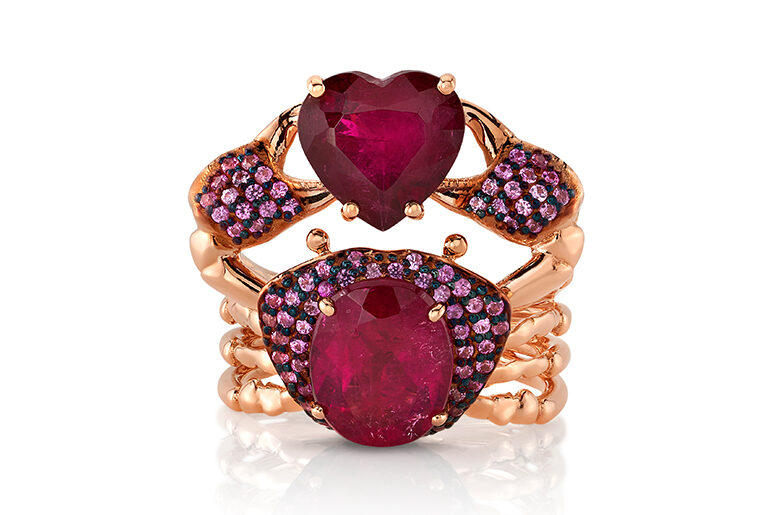
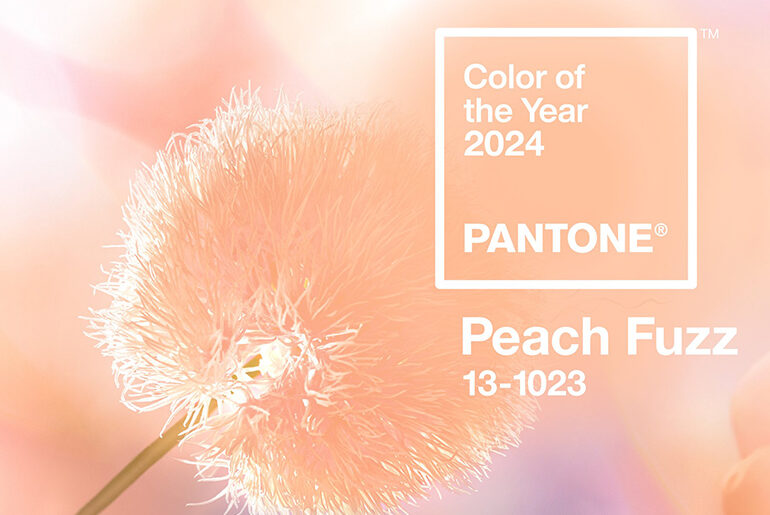
Comments are closed.